

Today we have released 182 files online including records from the Prime Minister’s Office, 1999-2003, covering Tony Blair’s Labour administration (PREM 49).
There are also files relating to the papers of former prime ministers, including of Sir Winston Churchill, and records of the Denning Inquiry 1963 (CAB 103).
In addition, there are some files from the Civil Service Department relating to the Census Office and civil servants’ duties, from 1984 and 1986.
The files cover issues including national security, devolution and relations with other countries.
PREM 49 – Previously retained records of the Prime Minister’s Office: 1999-2003
- PREM 49/1159 (PDF, 225 MB)
- PREM 49/1188 (PDF, 210 MB)
- PREM 49/1193 (PDF, 157 MB)
- PREM 49/1218 (PDF, 68 MB)
- PREM 49/1230/1 (PDF, 243 MB)
- PREM 49/1230/2 (PDF, 390 MB)
- PREM 49/1230/3 (PDF, 249 MB)
- PREM 49/1403 (PDF, 140 MB)
- PREM 49/1631 (PDF, 102 MB)
- PREM 49/1790 (PDF, 39 MB)
- PREM 49/1869 (PDF, 160 MB)
- PREM 49/1883 (PDF, 71 MB)
- PREM 49/1893 (PDF, 65 MB)
- PREM 49/1952 (PDF, 141 MB)
- PREM 49/1970 (PDF, 168 MB)
- PREM 49/1971 (PDF, 75 MB)
- PREM 49/1981 (PDF, 11 MB)
- PREM 49/2002 (PDF, 114 MB)
- PREM 49/2033 (PDF, 59 MB)
- PREM 49/2066 (PDF, 67 MB)
- PREM 49/2067 (PDF, 223 MB)
- PREM 49/2068 (PDF, 172 MB)
- PREM 49/2069 (PDF, 130 MB)
- PREM 49/2070 (PDF, 128 MB)
- PREM 49/2072 (PDF, 152 MB)
- PREM 49/2074 (PDF, 10 MB)
- PREM 49/2076 (PDF, 9 MB)
- PREM 49/2089 (PDF, 56 MB)
- PREM 49/2125 (PDF, 163 MB)
- PREM 49/2161 (PDF, 193 MB)
- PREM 49/2163 (PDF, 181 MB)
- PREM 49/2194 (PDF, 126 MB)
- PREM 49/2238 (PDF, 243 MB)
- PREM 49/2249 (PDF, 41 MB)
- PREM 49/2297 (PDF, 29 MB)
- PREM 49/2329 (PDF, 52 MB)
- PREM 49/2360 (PDF, 10 MB)
- PREM 49/2363 (PDF, 158 MB)
- PREM 49/2370 (PDF, 303 MB)
- PREM 49/2474 (PDF, 149 MB)
- PREM 49/2501 (PDF, 171 MB)
- PREM 49/2502/1 (PDF, 314 MB)
- PREM 49/2502/2 (PDF, 287 MB)
- PREM 49/2504 (PDF, 174 MB)
- PREM 49/2505 (PDF, 85 MB)
- PREM 49/2506 (PDF, 167 MB)
- PREM 49/2507 (PDF, 148 MB)
- PREM 49/2508 (PDF, 175 MB)
- PREM 49/2509 (PDF, 328 MB)
- PREM 49/2511 (PDF, 234 MB)
- PREM 49/2513 (PDF, 158 MB)
- PREM 49/2517 (PDF, 103 MB)
- PREM 49/2523/1 (PDF, 190 MB)
- PREM 49/2523/2 (PDF, 116 MB)
- PREM 49/2527 (PDF, 113 MB)
- PREM 49/2539 (PDF, 138 MB)
- PREM 49/2540 (PDF, 103 MB)
- PREM 49/2541 (PDF, 146 MB)
- PREM 49/2542 (PDF, 135 MB)
- PREM 49/2547 (PDF, 181 MB)
- PREM 49/2568 (PDF, 65 MB)
- PREM 49/2569 (PDF, 212 MB)
- PREM 49/2570 (PDF, 60 MB)
- PREM 49/2571 (PDF, 180 MB)
- PREM 49/2572 (PDF, 183 MB)
- PREM 49/2597 (PDF, 269 MB)
- PREM 49/2658 (PDF, 270 MB)
- PREM 49/2660 (PDF, 250 MB)
- PREM 49/2682 (PDF, 220 MB)
- PREM 49/2689 (PDF, 132 MB)
- PREM 49/2696 (PDF, 176 MB)
- PREM 49/2788 (PDF, 145 MB)
- PREM 49/2800 (PDF, 274 MB)
- PREM 49/2801 (PDF, 246 MB)
- PREM 49/2804 (PDF, 227 MB)
- PREM 49/2815 (PDF, 122 MB)
- PREM 49/2821 (PDF, 102 MB)
- PREM 49/2822 (PDF, 156 MB)
- PREM 49/2863 (PDF, 180 MB)
- PREM 49/2897 (PDF, 122 MB)
- PREM 49/2931 (PDF, 169 MB)
- PREM 49/2945 (PDF, 233 MB)
- PREM 49/2969 (PDF, 150 MB)
- PREM 49/2972/1 (PDF, 331 MB)
- PREM 49/2972/2 (PDF, 504 MB)
- PREM 49/2972/3 (PDF, 85 MB)
- PREM 49/2991 (PDF, 232 MB)
- PREM 49/2999 (PDF, 176 MB)
- PREM 49/3001 (PDF, 251 MB)
- PREM 49/3019 (PDF, 237 MB)
- PREM 49/3045 (PDF, 359 MB)
- PREM 49/3108 (PDF, 231 MB)
- PREM 49/3109 (PDF, 303 MB)
- PREM 49/3141 (PDF, 262 MB)
- PREM 49/3272 (PDF, 161 MB)
- PREM 49/3283 (PDF, 182 MB)
- PREM 49/3284 (PDF, 141 MB)
- PREM 49/3305 (PDF, 182 MB)
- PREM 49/3326 (PDF, 146 MB)
- PREM 49/3379 (PDF, 203 MB)
- PREM 49/3383 (PDF, 194 MB)
- PREM 49/631 (PDF, 240 MB)
- PREM 49/783 (PDF, 138 MB)
- PREM 49/828 (PDF, 140 MB)
- PREM 49/885 (PDF, 229 MB)
- PREM 49/930/1 (PDF, 117 MB)
- PREM 49/930/2 (PDF, 96 MB)
- PREM 49/933 (PDF, 150 MB)
CAB 103 – Records of the Denning Inquiry 1963 and former Prime Ministers’ papers, 1984-1996
- CAB 103/772 (PDF, 223 MB)
- CAB 103/775 (PDF, 188 MB)
- CAB 103/777 (PDF, 92 MB)
- CAB 103/778/1 (PDF, 158 MB)
- CAB 103/778/2 (PDF, 42 MB)
- CAB 103/781 (PDF, 217 MB)
- CAB 103/782 (PDF, 27 MB)
- CAB 103/784/1 (PDF, 246 MB)
- CAB 103/784/2 (PDF, 144 MB)
- CAB 103/785 (PDF, 105 MB)
- CAB 103/786 (PDF, 81 MB)
- CAB 103/788 (PDF, 201 MB)
- CAB 103/789 (PDF, 218 MB)
- CAB 103/790 (PDF, 132 MB)
- CAB 103/791 (PDF, 168 MB)
- CAB 103/792 (PDF, 149 MB)
- CAB 103/793 (PDF, 195 MB)
- CAB 103/795 (PDF, 159 MB)
- CAB 103/796 (PDF, 210 MB)
- CAB 103/797 (PDF, 251 MB)
- CAB 103/798 (PDF, 136 MB)
- CAB 103/799 (PDF, 187 MB)
- CAB 103/800 (PDF, 25 MB)
- CAB 103/802 (PDF, 171 MB)
- CAB 103/805 (PDF, 205 MB)
- CAB 103/806 (PDF, 140 MB)
- CAB 103/807/1 (PDF, 234 MB)
- CAB 103/807/2 (PDF, 401 MB)
- CAB 103/808 (PDF, 243 MB)
- CAB 103/809 (PDF, 87 MB)
- CAB 103/813/1 (PDF, 196 MB)
- CAB 103/813/2 (PDF, 457 MB)
- CAB 103/814/1 (PDF, 249 MB)
- CAB 103/814/2 (PDF, 288 MB)
- CAB 103/814/3 (PDF, 243 MB)
- CAB 103/814/4 (PDF, 144 MB)
- CAB 103/815 (PDF, 217 MB)
- CAB 103/816/1 (PDF, 208 MB)
- CAB 103/816/2 (PDF, 188 MB)
- CAB 103/817 (PDF, 68 MB)
- CAB 103/818 (PDF, 77 MB)
- CAB 103/820 (PDF, 128 MB)
- CAB 103/823 (PDF, 5 MB)
- CAB 103/824 (PDF, 211 MB)
- CAB 103/826 (PDF, 1 MB)
- CAB 103/827 (PDF, 17 MB)
- CAB 103/830 (PDF, 147 MB)
- CAB 103/832 (PDF, 189 MB)
- CAB 103/833 (PDF, 21 MB)
- CAB 165/1213 (PDF, 54 MB)
- CAB 165/1214 (PDF, 17 MB)
- CAB 165/1215 (PDF, 17 MB)
- CAB 165/1216 (PDF, 23 MB)
BA 17 – Civil Service Department: Machinery of Government files, 1984 and 1986
- BA 17/1441 (PDF, 21 MB)
- BA 17/1442 (PDF, 197 MB)
- BA 17/1443 (PDF, 199 MB)
- BA 17/1444 (PDF, 250 MB)
- BA 17/1445 (PDF, 313 MB)
- BA 17/1446 (PDF, 340 MB)
- BA 17/1447 (PDF, 400 MB)
- BA 17/1448 (PDF, 207 MB)
- BA 17/1449 (PDF, 23 MB)
- BA 17/1450 (PDF, 318 MB)
- BA 17/1451 (PDF, 213 MB)
- BA 17/1452 (PDF, 230 MB)
- BA 17/1453 (PDF, 324 MB)
- BA 17/1454 (PDF, 233 MB)
- BA 17/1455 (PDF, 280 MB)
- BA 17/1456 (PDF, 265 MB)
- BA 17/1457 (PDF, 65 MB)
- BA 17/1458 (PDF, 77 MB)
- BA 17/1459 (PDF, 258 MB)
- BA 17/1460 (PDF, 285 MB)
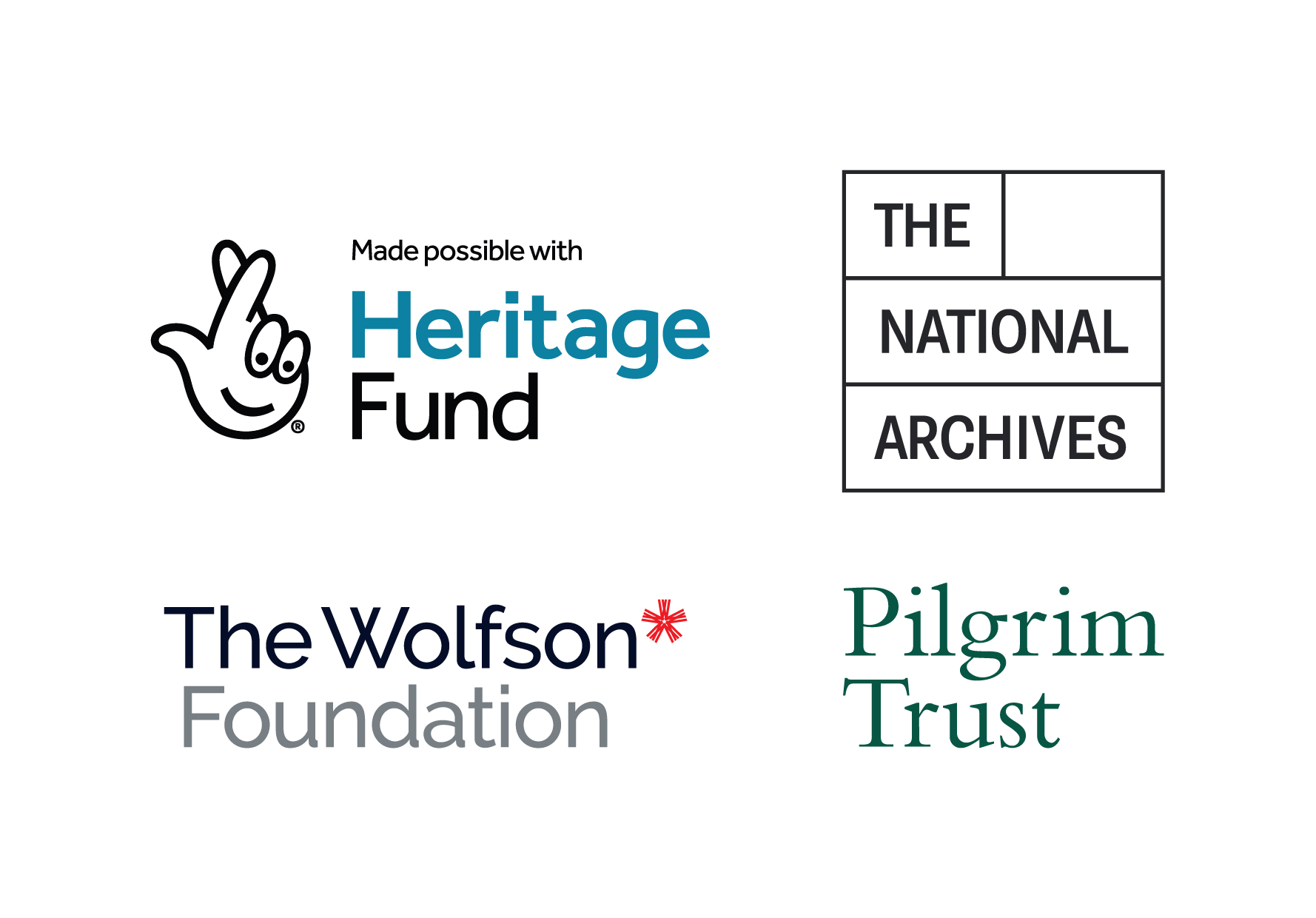
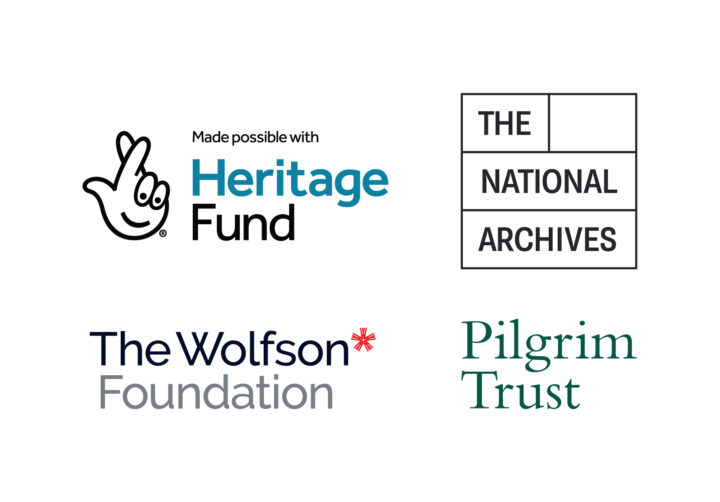
A £5m investment into the archives sector will unlock collections across the UK and build the skills and resilience needed to care for them into the future.
The National Archives, the Pilgrim Trust and the Wolfson Foundation are delighted to announce that The National Lottery Heritage Fund has invested in the Archives Revealed funding programme, awarding £5 million to the partnership. This is one of the Heritage Fund’s biggest investments into archives this century and will increase the value of the programme to £6 million over three years, allowing many more archives to benefit from the fund.
Eilish McGuinness, Chief Executive of The National Lottery Heritage Fund, said: “Our archives are home to our stories. Records, collections and histories all shine a light on who we are, how we live and what is important to us. I am delighted that National Lottery funding will support Archives Revealed to unlock many more of these stories right across the UK and safeguard them for future generations.
“Our £5million investment will not only amplify the impact of the fantastic Archives Revealed programme – a long running partnership between The National Archives, the Pilgrim Trust and the Wolfson Foundation – but will also share skills and knowledge, foster partnerships and build organisational resilience in the sector. All of this is vital for protecting the future of our archives and delivering our vision for heritage to be valued, cared for and sustained for everyone, now and in the future.”
Archives Revealed is the only national funding programme dedicated to unlocking archival collections. The aim of the fund is to ensure that significant archive collections, representing the lives and perspectives of all people across the UK, are made accessible to the public for research and enjoyment.
This new investment from The National Lottery Heritage Fund will enable Archives Revealed to support more and larger grants, creating greater impact across the archives sector. The programme will also include funding for public engagement and participatory work for the first time. Archives Revealed will give around 160 grants to archives across the UK over the coming three years, and the Heritage Fund’s investment will ensure that over five times more funding is delivered in 2024-2027 than was possible in 2020-2023.
The programme will continue to offer Cataloguing Grants of up to £50,000 for archives to create catalogues of important archival collections. Catalogues enable people to find and explore archive collections – without them, there would be no access to these crucial records and the stories they tell. Archives Revealed Scoping Grants of up to £3,000 will also remain available to assess underexplored collections and support their development.
Additionally, the programme will start offering larger Consortium Grants of up to £150,000, for projects spanning multiple archives and collections that have the potential to create wider regional or thematic impact. The funding from the Heritage Fund will also allow The National Archives to create a new sector development and training programme, to build the skills of archive professionals and volunteers so that the funded projects and organisations can achieve even more.
Jeff James, Chief Executive and Keeper of The National Archives on behalf of Archives Revealed said:
“This is an exciting time to be involved in archives. This generous grant allows Archives Revealed to help more archives in the coming years, to get the very best out of their collections and make them more accessible, demonstrating that archives truly are for everyone. The addition of a new training programme allows us to continue to support the archive sector as a thriving, inclusive sector which places development and professionalism at its heart. Archives Revealed will continue to save archival heritage, equip archives for the future through skills and knowledge sharing, and significantly increase the reach of archives to diverse audiences across the UK.”
Archives are for everyone because they are about everyone – past, present and future. The new, expanded funding programme will support The National Archives’ work across the archives sector, as well as Heritage 2033, The National Lottery Heritage Fund’s 10-year strategy for investing in heritage for the future as well as the present.
Further details on each grant programme’s timeframe and application process will be published in August, and a webinar on Monday 2 September will provide comprehensive information for applicants.
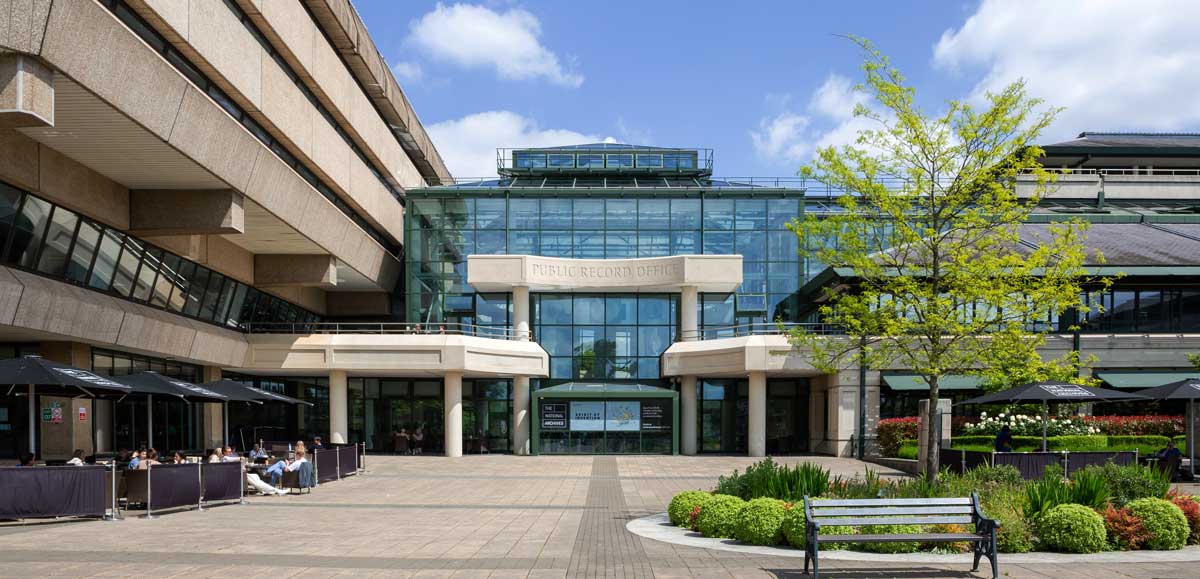
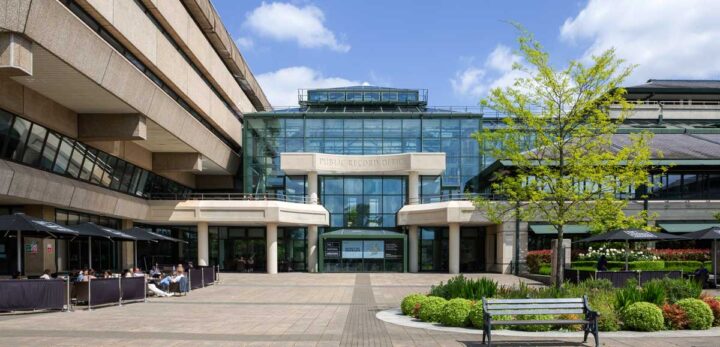
The Civil Service has now entered the pre-election period. The National Archives is a government department and during this time, our website and communications channels will be quieter than usual and many activities will be paused until a Government is formed. This will last until the General Election concludes.
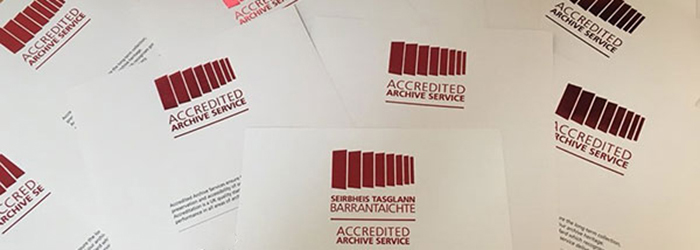
Archive Service Accreditation is the UK-wide standard for archive services. Following an Archive Service Accreditation Panel in March, we are pleased to announce the following archive services have been awarded accreditation for the second time:
- Archives and Cornish Studies Service
- Bank of England Archive
- Barnsley Archives and Local Studies
- Lloyds Banking Group Archives
- London School of Hygiene and Tropical Medicine Archives Service
- National Theatre Archive
- Portsmouth History Centre
- Record Office for Leicestershire, Leicester and Rutland
- The Royal Society
- Surrey History Centre
- West Yorkshire Archive Service
- Archives Wigan and Leigh
- University of Kent Special Collections and Archives
All accredited archive services must apply again for accreditation six years after their initial award to retain their accredited status. By achieving accreditation for a second time these archive services have demonstrated a commitment to continuing development of their service and the effective management of change.
Archive Service Accreditation is supported by a partnership of the Archives and Records Association (UK), Archives and Records Council Wales, National Records of Scotland, Public Record Office of Northern Ireland, Scottish Council on Archives, The National Archives, and the Welsh Government through its Museums, Archives and Libraries Wales division.
View the full list of accredited archive services
Find out more about Archive Service Accreditation


We are delighted to announce a new commercial collaboration with Laidlaw Education who will be leasing part of our building.
Laidlaw Education LLP is an Education Consultancy offering individualised teaching for children of all ages, both during the day and after school, including those with Dyslexia who come for specific support as part of their school day.
They will occupy a part of our building overlooking the public car park. The space at Kew will replace one of their current centres at Dukes Meadow.
This will not impact on our current offer to our visitors nor will it change our commitment to our statutory obligations under the Public Records Act 1958. Our priorities will always be our staff, our visitors and the records.
It is the result of a long piece of work by the Business Development team at The National Archives who have been looking at commercial opportunities that will realise value and open out more of our collection. As well as supporting our education agenda, this also reinforces our already strong links with the local Richmond community. We aim to create new, inclusive and exciting spaces, physical and virtual, in which people can encounter our collection in new ways. Income generated from the project will be reinvested in The National Archives to support our services to the public and help to widen the public experience and understanding of archives and our history.
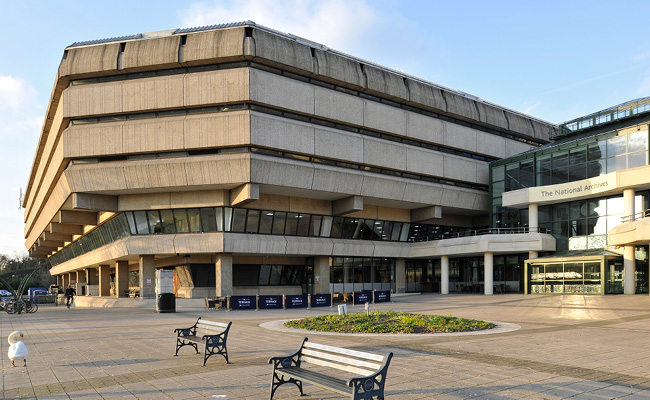

We have started work to replace the repository windows on the second, third and fourth floors of the 1970s part of The National Archives’ building. The work is due to be completed in early 2025 and will ensure we continue to protect and conserve our collections.
Our existing aluminium double-glazed windows are now over 40 years old; they have outlived their life expectancy and it is time to replace them.
The replacement of the windows will improve the environmental conditions of the repositories contributing to the long-term preservation of our collection, as well as being more energy efficient (in keeping with our sustainability plans) and therefore potentially saving money.
The new windows will not alter how our building looks.
Most of the work will be completed within normal opening hours which means there could be some disruption for visitors and staff as the work is likely to be noisy.
Thank you for your support and understanding during these major improvement works to our site.

 Saul Nassé has been appointed by the Department for Culture, Media, and Sport as Chief Executive and Keeper of The National Archives and will take up the post at the end of July. He takes over from Dr Jeff James who has led The National Archives successfully since 2014.
Saul Nassé has been appointed by the Department for Culture, Media, and Sport as Chief Executive and Keeper of The National Archives and will take up the post at the end of July. He takes over from Dr Jeff James who has led The National Archives successfully since 2014.
Saul Nassé is a Fellow of Robinson College, University of Cambridge and former Group Chief Executive of Cambridge Assessment, the University’s examinations business. In his eight years with the organisation, he developed new digital propositions, grew international reach, and deepened engagement with teams around the world.
Previously, Saul held leadership roles at the BBC both in the UK and India. As Controller, BBC Learning, he led the teams that commissioned and produced educational content, such as Bitesize and Domesday Reloaded.
Andrew Wathey, Chair of The National Archives Board said:
‘I am excited to welcome Saul Nassé as the next Chief Executive and Keeper at The National Archives. He brings a wealth of leadership experience in a variety of high-profile roles, and a deep commitment to The National Archives and to the enormous potential presented by archives in a digital age. He will be an excellent ambassador for The National Archives, building on the organisation’s successes as we take forward our vision Archives for Everyone. I very much look forward to working with him.’
About his appointment, Saul said:
‘The National Archives is an extraordinary institution, preserving the records of the nation and enriching the lives of individual citizens. It’s a privilege to be asked to be the next Chief Executive and Keeper, and I look forward to working with the team, the board and colleagues across the worlds of archives and culture. I believe that together we can truly create archives for everyone, enhancing the impact of the collections in the future.’
Further information on The National Archives here.
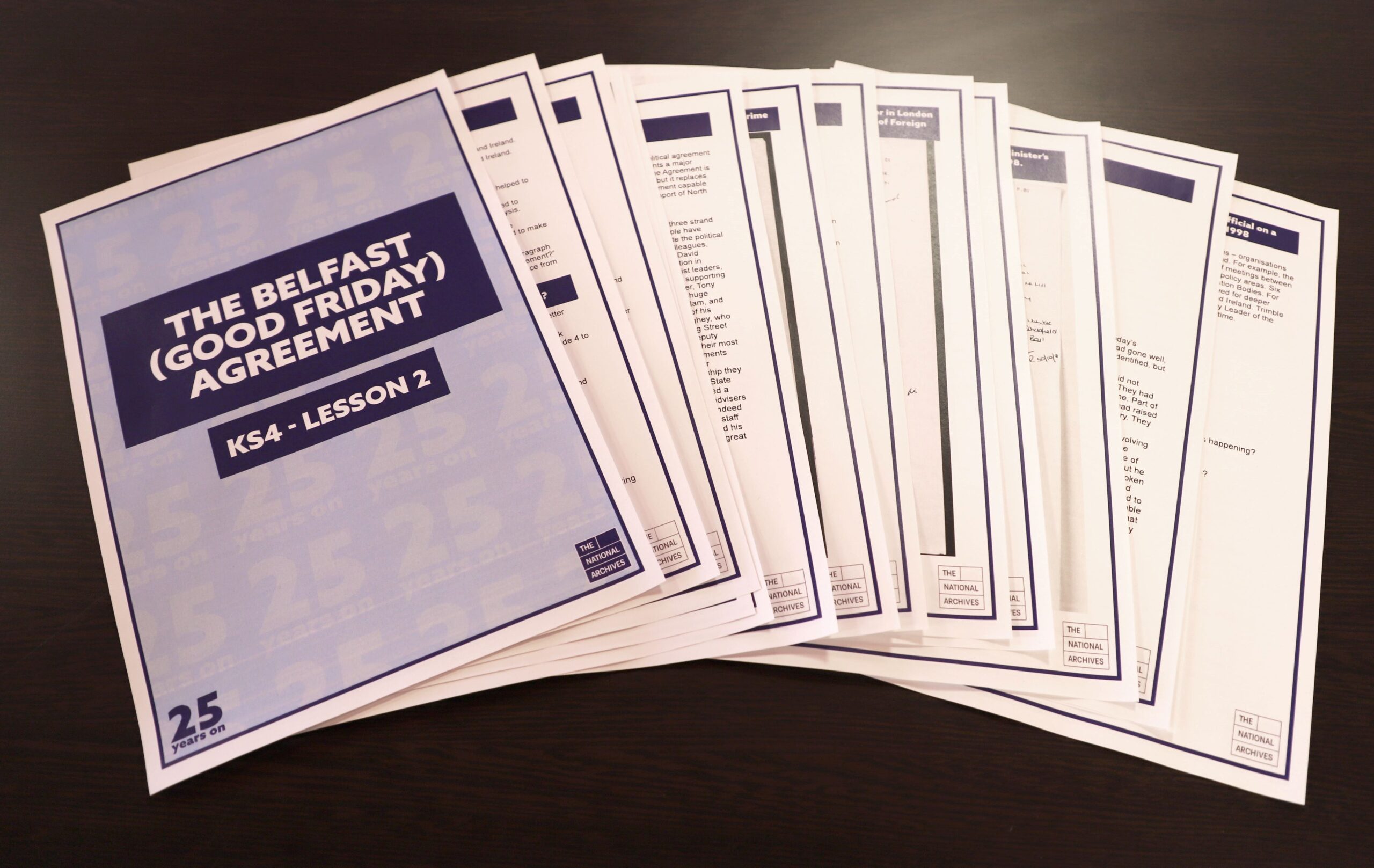
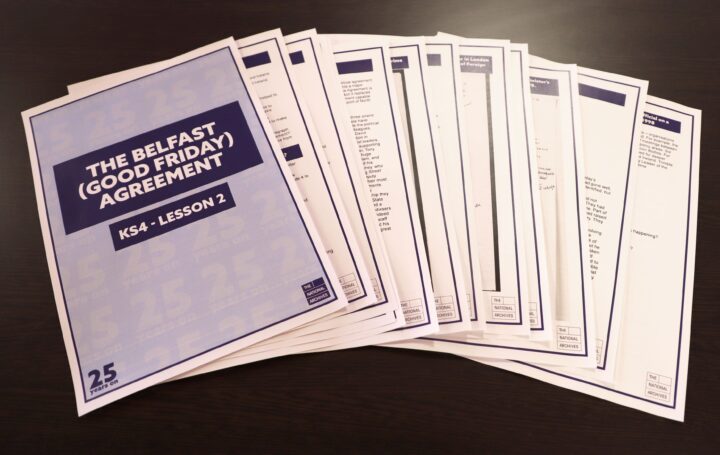
The Northern Ireland Office, has today launched the second phase of a package of educational materials to mark the 25th anniversary of the Belfast (Good Friday) Agreement which have been developed here at The National Archives alongside academics, educational and historical experts .
The initiative first launched in 2023, as part of a wider UK Government programme to mark this important milestone.
The materials include Key Stage 3, 4, and 5 lesson plans for delivery in school classrooms. The materials are designed to support detailed discussion and comprehension of the journey to the Belfast (Good Friday) Agreement and align with the national curriculum in England and relevant CCEA GCSE and AQA A-level history syllabus.. Students will engage with materials, including digital copies of primary sources, about the Downing Street Declaration, the road to the Agreement, the negotiations that took place and immediate impact of the Agreement.
The free resources are available to teachers, parents and children across Northern Ireland and the rest of the UK on an optional basis.
Teachers, and those who wish to use the free educational resources developed by The National Archives, can download the materials here.
Education has a key role in supporting and maintaining peace and prosperity in Northern Ireland, and it’s right that children should learn about the Belfast (Good Friday) Agreement’s significance in an age appropriate, factual manner at school.
The first phase of the resources were launched in March 2023 and consisted of an assembly pack containing an animated video and accompanying resources to support discussions in school assemblies for all ages.
Secretary of State for Northern Ireland Chris Heaton-Harris said:
“Thanks to the Belfast (Good Friday) Agreement, Northern Ireland’s young people have grown up in peace and safety, looking forward to a future of hope and opportunity.
“The first part of this package was incredibly successful and I hope this next part will give young people in Northern Ireland and across the UK the chance to deepen their appreciation and understanding of the Agreement now and for generations to come.”
Jeff James, Chief Executive and Keeper of The National Archives said:
‘This resource builds on the assembly pack and allows teachers and students to explore the history of the Belfast (Good Friday) Agreement using material from the original documents. It brings alive the issues, the people involved, and the decisions made.’
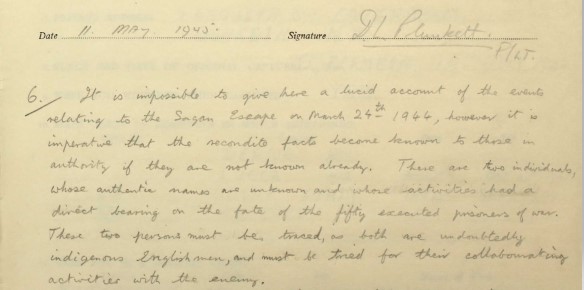
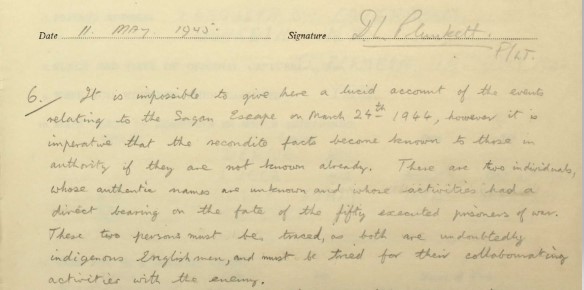
An extraordinary claim that Allied prisoners of war involved in the Great Escape were betrayed by two of their own side has come to light in files at The National Archives.
Seventy-six prisoners escaped from Stalag Luft III camp 80 years ago this week on the night of 24-25 March, 1944 after spending almost a year tunnelling. All but three were recaptured and within a week 50 were shot on the direct orders of Hitler.
“The Mapmaker” Flt Lt Desmond Plunkett was the 13th man out – he volunteered because no one else wanted that number. He was recaptured near the Austrian border and interrogated by the Gestapo who held him for eight months before moving him to POW camp Stalag Luft I.
As recorded in a record held by The National Archives, he told British authorities when he was released from the camp in May 1945: “There are two individuals… whose activities have a direct bearing on the fate of the 50 executed prisoners of war.
“These two persons must be traced, as both are undoubtedly indigenous Englishmen, and must be tried for their collaborating activities with the enemy.”
His claim appears in a questionnaire which all POWs were asked to complete when they were freed. The “collaborators” are not identified.
Dr William Butler, The National Archives’ military expert and Head of Modern Collections, said: “When Plunkett was returned to a POW camp he was hospitalised because of the mental toll his experience in Gestapo prisons took on him – there’s a suggestion that he blamed himself for the executions of the 50 by accidentally saying something in interrogation.”
Other prisoners reassured him that this was impossible, because the shootings happened before Plunkett was questioned by the Gestapo.
Donald Pleasence
Donald Pleasence’s character Flt Lt Colin Blythe in the 1963 film The Great Escape was partly based on Plunkett, who was in charge of producing 2500 maps for escapers.
Pleasence drew on lived experience to create the character having been a wireless operator in RAF bombers before being shot down over France in August 1944. He was also imprisoned in Stalag Luft I. He had started the war as a conscientious objector but enlisted in 166 Squadron in 1941 after the London Blitz.
Pleasence’s questionnaire is also among the records The National Archives holds. The collection includes German POW cards for everyone involved in the Great Escape with debriefing notes and letters from their families to the Air Ministry. The files are available to the public in our reading rooms and online.

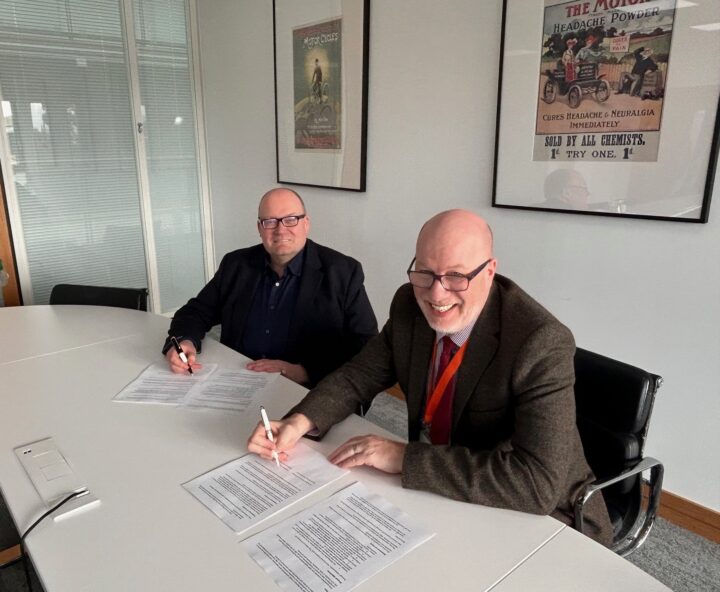
The National Archives and Arts Council England have signed a new collaboration agreement for 2024 to 2027. This agreement outlines how we will build on our previous work together to ensure a comprehensive cultural offer for the public, which includes the rich variety of arts, museums, libraries and archives.
Arts Council England is the national development agency for museums, libraries and the arts. They invest money from the Government and The National Lottery and provide a range of development programmes to support the arts and cultural sector.
The National Archives holds similar leadership responsibilities for archives in England. We also provide advice, support and grants to help archives across the country to develop and enhance their services, facilities and collections.
The new agreement recognises that our two strategic visions – Let’s Create and Archives Unlocked – reflect many areas of shared interest. Archives, libraries and museums often share audiences, workforces, stakeholders and collections, and frequently operate interdependently.
As partners, we will act strategically and practically to help communities across England engage with culture and ensure that our sectors’ collections and activities are accessible to everyone. We will develop programmes to make our workforces and collections more inclusive and reflective of the UK’s diversity.
We will also explore ways to increase our sectors’ sustainability and digital capacity. We will work together to open up data and use this evidence to demonstrate the impact of cultural organisations, including on health and wellbeing.
The agreement was signed by Jeff James from The National Archives and Darren Henley from Arts Council England during a visit to The National Archives.
Jeff James, Chief Executive and Keeper at The National Archives, said:
“We’re delighted to sign this new agreement, which reaffirms our two organisations’ commitment to working together successfully as partners. Through this agreement, we will be able to tackle shared challenges across our sectors and make the most of opportunities to advocate, share knowledge and secure funding for arts and culture.”
Darren Henley, Chief Executive at Arts Council England, said:
“The Arts Council has many values in common with The National Archives and we have shared sector audiences particularly in museums and libraries which are fully embedded in our Let’s Create strategy. We have already produced joint initiatives such as the Standard Charge and will continue to explore how we can support the sector strategically and practically through the challenges it faces. I’m very pleased to sign a collaboration agreement for another three years and look forward to continuing to work towards our shared goals.”